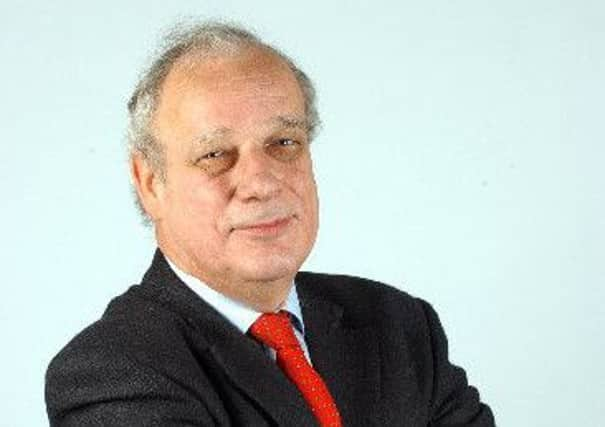Comment: Meet confidence and cash piles conundrum


Pressure is also set to build on the UK’s big companies to start spending some of the £750 billion cash pile they have built up over the past three years – the highest level on record.
In the topsy-turvy aftermath of the banking crisis, consumers are strapped for cash as a combination of relentless rises in utility charges and inflation have left households with lower discretionary spending power.
Advertisement
Hide AdAdvertisement
Hide AdLending to small and medium-sized companies has been conspicuously weak. As Ian Stewart, Deloitte chief economist, comments: “While major corporates are profitable and cash-rich, governments and consumers in Western economies are, by and large, short of cash. If Western economies are to grow over the coming years businesses will need to do a lot of the spending.”
The missing ingredient, of course, is confidence. And allowing time for this to recover may make too slow an investment spending recovery. The Office of Budget Responsibility forecasts that in the next five years business investment will rise by 10 per cent a year, double the rate in the decade prior to the financial crisis. But far from a business investment resurgence, such spending has not recovered and remains lamentable compared with previous periods.
In real terms, business investment is down 19 per cent from the peak five years ago, a far worse performance than at the same stage of prior recession/recovery cycles.
Investment was around its pre-recession peak at this stage of the cycles of the 1970s, 1980s and 1990s. The result is that the share of investment in GDP (14.2 per cent) in 2012 is close to the record low (14.1 per cent) seen in 2011.
So, if companies are reluctant to spend it, for how long and by how much might these cash surpluses grow before the owners of companies – the shareholders – begin to get restive and demand capital repayments? After all, the money belongs to them. And if companies are unable or unwilling to invest, there is a compelling case for repayments to be made in the form of special one-off dividends to the shareholders.
They can either re-invest the capital in companies with a need for it to expand their business, or spend it themselves. Either way, there would be a greater economic advantage than simply allowing cash to accumulate in corporate vaults. And as many investors will testify, such cash may be better spent by shareholders on their own than allowing companies to amass large sums that too often work to fire the vainglorious ambitions of boardrooms who then embark on highly expensive and ill-conceived diversifications and acquisitions.
Indeed, the M&A bonanza in the 20 years leading up to 2008 saw many wealth-destroying purchases. Best, runs the argument, to keep company surplus pots “lean and mean”.
But I wish it were so simple. Investors in the main do not conform to the popular stereotype of grasping moneybags impatient to squeeze every ounce of capital out of the companies in which they hold shares. Investors buy and hold shares in the expectation that companies do the investing and earn a decent return. That, after all, is what companies were set up to do and why investors invest.
Advertisement
Hide AdAdvertisement
Hide AdAnd investors will – in the main – stick with a company and retain their shares if it has a well thought-out and presented investment case. It can take years for capital investment in plant and machinery to pay off in production, market share and profits. Capital payback does not address the bigger problem of lack of confidence or lack of ideas.
There is another problem with capital repayments. Since the dominant shareholders on FTSE-100 share registrars are investment institutions, the repayments can stick in the cash deposits of the giant pension funds and life assurance companies. Longer term, this can impact on investor returns as cash piles up in low interest-bearing deposit accounts.
In truth, some companies have already made big one-off pay-outs to shareholders – Vodafone and Cairn Energy among the most striking last year. These two alone accounted for £4.4 billion. Indeed, because of the absence of these in the first three months of 2013, dividends from UK-listed companies fell by almost a quarter. Underlying dividend growth for the first quarter of 2013 with these special pay-outs stripped out was 6.1 per cent, lower than the 9.2 per cent underlying growth seen in the first three months of 2012.
The favoured option on these corporate cash piles among companies for now is to hold on to them. A Deloitte poll of 136 large businesses found that the most appropriate use for corporate cash in 2012 – cited by over a third – was “holding on to it”.